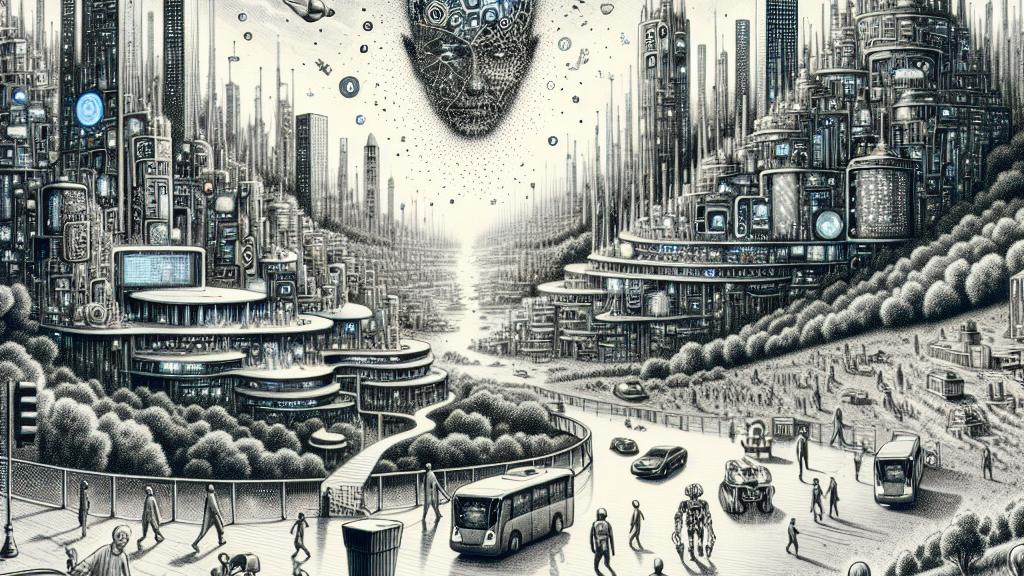How AI Might Change Human Evolution
Overview
- AI stands to significantly reshape the very fabric of human evolution.
- A reduction in brain size and social connections could fundamentally alter our relationships.
- Future generations might face a profound redefinition of what it means to be human.

AI's Transformative Role in Human Evolution
In Australia, evolutionary biologist Robert Brooks presents an intriguing inquiry: how exactly is artificial intelligence transforming human evolution? This question is more than philosophical; it touches on our biological future. Imagine a scenario where we become increasingly reliant on AI for everything—from navigating our cities to answering complex questions. Could this dependency lead to a reduction in our cognitive abilities? Studies have indicated that as we depend more on digital devices, our natural skills, like memory and spatial awareness, may decline. For example, GPS navigation has indeed made it simpler to find our way, but experts warn that this could diminish our navigational skills over time. Thus, the impact of AI could not only streamline our lives but also risk making us less capable individuals.
The Erosion of Genuine Human Connections
History provides us with fascinating insights into adaptation, as seen in the domestication of wolves into the dogs we cherish today. This process showcases how interactions with other species can shape future traits; however, Brooks cautions that our relationship with AI could yield damaging effects. Picture a future where children grow up favoring conversations with virtual companions over friendships with their peers. It's an alarming thought that our affinity for AI could create a generation more skilled at texting than socializing. Consider the irony in this: as we crave connection, we might trade authentic human interactions for superficial digital ones. Can we afford to lose the rich tapestry of human connection for the cold efficiency of AI?
AI: A Double-Edged Sword
While AI has remarkable potential, it poses a nagging risk of evolving into a burdensome parasite, much like social media morphed from a haven for connection to a source of anxiety. Initially, platforms such as Instagram brought us joy and a sense of community; however, they've also engendered comparison and dissatisfaction. Brooks keenly observes that if AI learns from human behavior and exploits our emotions—think of algorithms that amplify outrage—then we could be digging our own graves. Just imagine: if future technologies leverage our vulnerabilities to drive engagement, the repercussions may extend far beyond mere loneliness; we might witness an erosion of empathy itself. The crux of this dilemma lies in our actions today.
Rethinking Humanity in an AI-Dominated Future
As we ponder how AI shapes human evolution, we must consider the long-lasting impacts on our species. Brooks suggests that future humans may develop an enhanced capacity to resist harmful emotional stimuli encouraged by AI. Think of today's young adults; they often gravitate toward screens rather than face-to-face interactions. What might this pattern foretell for the next generation? Perhaps solitude will be viewed as comforting rather than isolating. If this trajectory holds, we might witness a time where the idea of being alone becomes synonymous with peace. Thus, we are left to contemplate: what does it mean to be human when authentic relationships risk becoming obsolete? Only we can navigate this intricate landscape shaped by our choices with AI.

Loading...